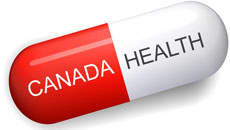With a New Year comes a surge of ‘New Year, New You’ resolutions. Every year the vast majority of Canadians set goals to improve their health and become the best versions of themselves. With such high goals and big expectations, it’s no surprise that most people give up their health resolutions not soon after they start.
With competing information in the marketplace on how to lose weight or become healthier, it’s hard to know how to achieve good health and to know where to start.
Canadian Registered Dietitian and specialist in HOW to eat well, Patricia Chuey, is frequently asked how to go about making improvements that have significant impact. Here are three of her top strategies for breaking down daunting health resolutions to make them manageable and attainable:
1. Make half your plate vegetables in most meals.
If you fill half your plate with vegetables you will greatly improve your odds of consuming more fibre, less fat, less salt and less sugar. The added fibre along with quality protein on your plate can help curb cravings and promote feeling full longer.
I recommend shopping for fresh fruits and vegetables at least two or three times each week to ensure you always have a good supply on hand. The more you cook at home, generally the greater control you have over your sugar, fat and salt intake. When you do eat out, ask for more vegetables on your plate than the regular serving and reduce the amount of white, low fibre starchy foods.
2. Be consistent in taking good quality vitamin supplements.
Ideally, we would all be able to meet all of our nutritional needs through the food we eat. However, in the fast-paced world we live in, 60 per cent of Canadians struggle to get all of the nutrients they need from their diet alone. So consider adding some natural health products to your daily routine.
But how do you choose the right ones? With so much competing information in the marketplace on vitamins and supplements, the vitamin aisle is extremely confusing for the average shopper. Backed by scientific research, I am comfortable recommending Canadian natural health products manufacturer, Jamieson. Their Jamieson Essentials line includes a Multivitamin, Omega-3, Probiotic and Vitamin D. These are four products most adults can benefit from taking. Always discuss your unique individual needs with your doctor, dietitian or pharmacist.
3. Walk!
Never underestimate the power of 20 minutes. Many people make lofty exercise goals that are a drastic change to their lifestyle. Avoid falling into a trap of thinking “I’ll either go to the gym for an hour or I’ll do nothing.” Instead, change your mindset from making it to the gym to making sure you squeeze in even a little activity each day.
For example, don’t mistake the power of walking. A 20-minute walk is quite simply two manageable ten minute chunks. If you walk out your door for ten minutes, turn around and come back, you’ve done a 20-minute workout. This short workout is excellent for your heart, circulation, blood pressure, blood sugar, weight, and gives you some wiggle room in your diet. If a person who has been inactive started walking vigorously for 20 to 30 minutes on most days, the caloric expenditure over the course of one year would be the equivalent of ten pounds of weight loss. Hard to believe, but it is because of the daily or very steady commitment.
There are many other spokes in the ‘wheel of health’ that contribute to well-being, for example: healthy sleep, stress management, happiness, job satisfaction, healthy relationships, not smoking, taking an 80-20 approach with eating…it all matters. With any well-being goals you set this year, start with these tips and break your resolutions into more tangible goals to ensure success!
Disclaimer: The viewpoints expressed by the author do not necessarily reflect the opinions, viewpoints and ideas of DARPAN Magazine.
.jpg)





